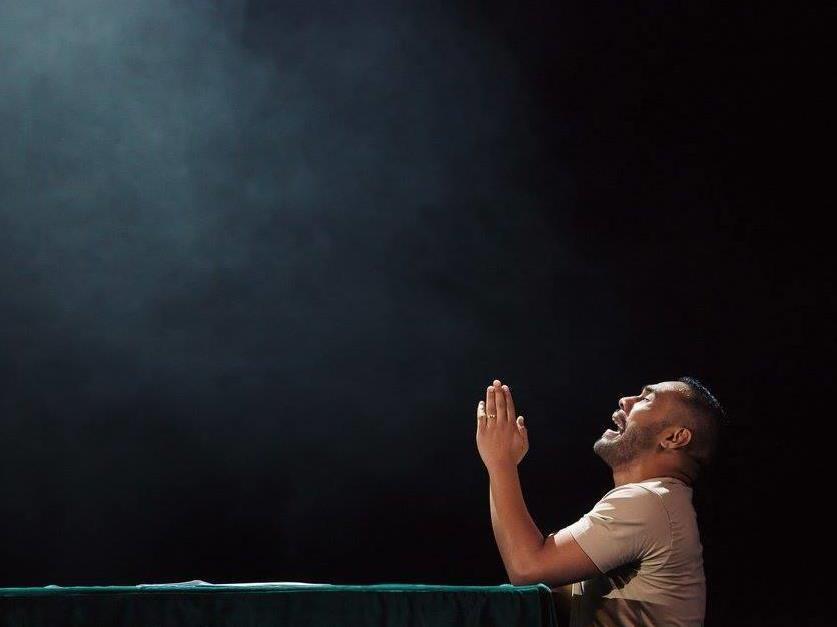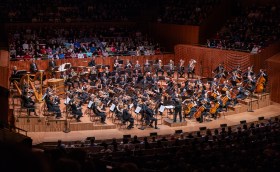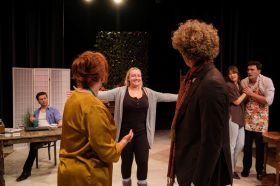Ray Chong Nee in Othello. Photograph by Daniel Boud via Bell Shakespeare.
Fairfax Studio was the perfect venue for Bell Shakespeare’s Othello, the company’s last production for 2016. The audience, a mix of those possibly new to Shakespeare and those renewing the acquaintance, was involved from the start and close enough to the soliloquies to hear those famous words spoken with admirable clarity by such highly professional actors.
To those who may not have seen a version of Othello since Laurence Olivier’s delivery in 1965, there were a few shocks, like 16th century language coming from 21st century mouths with no lavish sets to place us in Venice or Cyrus. Yet it all worked amazingly well with the use of a green rectangular ‘island,’ unobtrusively moved around the stage for multiple purposes.
The pace never faltered and the direction worked smoothly – with outstanding performances from Yalin Ozucelik as the dastardly Iago and Ray Chong Nee as the increasingly naïve general, Othello. However, Olivier’s African Moor was a figure of proud stature with dark skin, in striking contrast to the ‘white’ Desdemona he had the effrontery to marry. While Iago was resentful because of his military ambition had been slighted by Othello. The essence of this story was centred, by Shakespeare, around the fact that this formidable Moor – a man of different race and colour – fermented a deep, underlying desire for revenge in the Machiavellian Iago who referred, disparagingly, to Othello’s relationship with Desdemona as ‘an old black ram topping your prize ewe!’ How pertinent is this theme today, along with the bullying and subsequent domestic violence, every bit as much as it was in 1965 at the height of the human rights movement! Surely to underplay this situation is tantamount to some countries trying to rewrite history? The evil portrayed here is far more than mischief conceived by a malicious, manipulating man and Chong Nee could have been given much more scope for his character.
But, in Hamlet’s words, ‘the play’s the thing’ and it is the words that make the gradual erosion of Othello’s love for Desdemona, the loving woman who had seen ‘Othello’s visage in his mind’, all the more shocking. Even the final scene, though a little clumsy, is elevated by Othello’s grief-stricken words, ‘speak of me as… one who loved not wisely but too well!’
Bell Shakespeare’s Othello will be performed 119 times as the play travels to 28 different venues culminating at the Sydney Opera House in late October. A great opportunity for so many people to see, hear and appreciate the talent of one of literature’s greatest artists who knew not only how to write but also how to understand and depict the foibles of the human condition. As the program says ‘a world without Shakespeare would be a real tragedy!’
Rating: 4 stars out of 5
OTHELLO by William Shakespeare
Bell Shakespeare
Director: Peter Evans
Movement & Fight Director / Assistant Director Nigel Poulton
Set & Costume Designer Michael Hankin
Lighting Designer Paul Jackson
Composer & Sound Designer Steve Toulmin
Arts Centre Melbourne
14-23 July 2016





